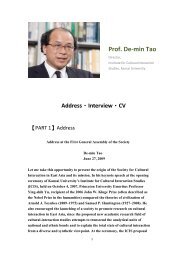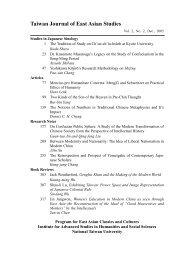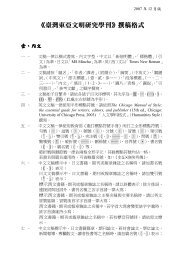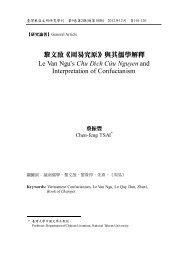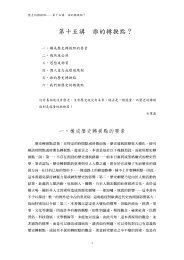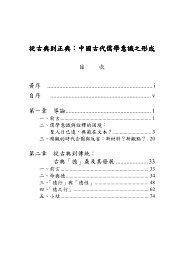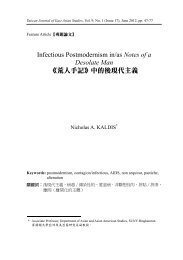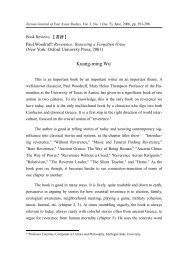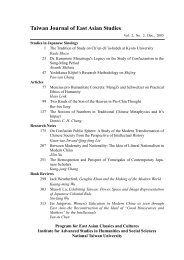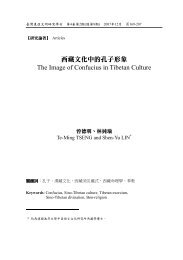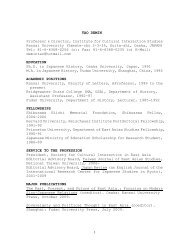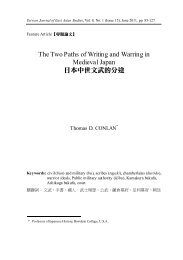臺灣東亞文明研究學刊 - 東亞經典與文化研究計畫 - 國立臺灣大學
臺灣東亞文明研究學刊 - 東亞經典與文化研究計畫 - 國立臺灣大學
臺灣東亞文明研究學刊 - 東亞經典與文化研究計畫 - 國立臺灣大學
Create successful ePaper yourself
Turn your PDF publications into a flip-book with our unique Google optimized e-Paper software.
216 Taiwan Journal of East Asian Studies, Vol. 4, No. 2 (Iss. 8), Dec., 2007<br />
(3) Finally ethnocentric identity formation is characterized by a spatial<br />
centralism: Our people live in the centre of the world, the others are marginal. The<br />
best example for this centralism is the Chinese conviction, that the Chinese people<br />
live in the middle of the world (Zhongguo).<br />
It is evident that this logic of ethnocentrism creates tensions, conflicts and<br />
clashes, since the others follow the same strategy. They put their others into the<br />
same negative shadow of normative quality as they have been put by these others in<br />
their respective concept of historical identity.<br />
There is one factor in this mutual devaluation and marginalization, which<br />
sharpens the conflict: Many cultures conceptualize their identity by using<br />
universalistic attributes for themselves. They sharpen the peculiarity and<br />
individuality of their identity with universal values, which at the same time include<br />
and exclude the others. They are included since the validity of these values is<br />
universal; but at the same time the difference of the others, which cause them to<br />
become others is at least potentially negated or dissolved. If the same synthesis of<br />
peculiarity and universalism takes place in interrelated identities the conflict<br />
between these peoples will develop a dangerous potential of mutual exclusion.<br />
Forms of religious fundamentalism are prominent examples.<br />
Overcoming Ethnocentrism<br />
I do not think that the tensional interrelationship of ethnocentrically<br />
conceptualized cultural identities can be totally and principally overcome. Why so?<br />
Human beings need a positive self-esteem as a constitutive element of their identity,<br />
and they have to realize this normative quality by discriminating themselves from<br />
the others. And since human life is always a struggle for getting the means for life<br />
and since there is always a shortage of means to fulfil one's own needs, people have<br />
viii



